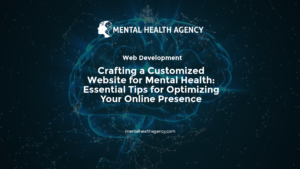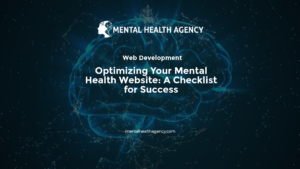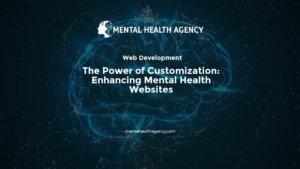Optimizing Referrals: Accelerating Growth in Mental Health Industry
Having a strong referral network is crucial in the mental health industry. Patients typically seek out mental health practitioners through word of mouth recommendations from friends, family, or other healthcare providers. Referrals from trusted sources not only increase the number of patients but also tend to result in higher patient retention rates. In fact, research shows that referrals tend to be more loyal and adhere better to treatment compared to patients who come through other sources.
Mental health practitioners who focus on optimizing their referral networks can expect to see accelerated growth in their practice. Here are some effective ways in which healthcare providers can increase their referrals:
1. Build Strong Relationships:
The cornerstone of every successful referral network is a strong relationship with other healthcare providers and members of the community. This involves keeping in touch with other professionals through regular phone chats, coffee dates, or email updates. Participating in community events or workshops, being active in professional organizations, and working on collaborative projects can also help establish a strong network.
2. Adopt a Patient-Centric Approach:
The patient experience is crucial when it comes to referrals. Patients who have a great experience with a mental health practitioner are more likely to recommend them to others. This involves providing quality care, effective communication, active listening, and empathetic support. Positivity, approachability, and an authentic interest in developing a rapport with patients is key to gaining their trust.
3. Cultivate Strong Online Presence:
A modern and user-friendly website with optimized content, social media profiles with regular postings, reviews on Google, Yelp and other directories, and a robust email marketing campaign can help practitioners establish their digital footprint. Being active and engaged with online communities and responding to reviews and comments can help build trust and establish credibility.
4. Provide Value-Added Services in Your Practice:
Patients appreciate convenience and value. Offering telehealth services, customized treatment plans, support groups, or additional therapies can increase patient satisfaction and boost referrals.
5. Establish a Referral Incentive Program:
Offering incentives such as discounts or referral bonuses to current clients who refer new patients can incentivize referrals and increase your patient base.
At MHA, we understand the importance of referrals and are committed to helping mental health practitioners accelerate their growth. Our team of experts specializes in digital marketing services that can help healthcare providers optimize their referral network.
We offer a wide range of services that address the specific needs of mental health practitioners. Our services including Search Engine Optimization, Branding, and Logo Design, Patient Retention, Content Marketing, Video Marketing, Marketing Automation, Google Local Service Ads, Paid Search Advertising, Mobile and Text Marketing, Reputation and Review Management, Social Media Management, Web Design, Email Marketing, Health Care Technology Consulting (EHR/EMR Systems, Patient Scheduling, Mental Health Assessment Technology, Telemedicine Platforms), and Medical Directory Optimization.
At MHA, we pride ourselves on being experts in the mental health industry and are committed to helping practitioners take their practice to the next level. We invite healthcare providers to schedule a complimentary strategy session with our experts to learn how we can help them optimize their referral network and accelerate growth.
In conclusion, establishing and optimizing a strong referral network is essential for practitioners in the mental health industry. By following the tips listed above, healthcare providers can enhance their patient experience, establish their online presence, and develop strong relationships with other professionals. At MHA, we are committed to helping practitioners achieve their growth goals and are equipped with the right resources and expertise to make that possible.






